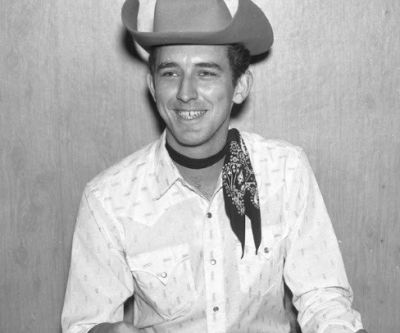December 20, 2018
Tuesday
8:00 p.m.
Minneapolis, MN
Test schedule
A live performance with Robin and Linda Williams at the Cedar Cultural Center
May 20, 2018
Sunday
3:00 p.m.
Lexington, MA
Lexington, MA
A live performance at the Saenger Theatre
April 10, 2018
Tuesday
8:00 p.m.
Tulsa, OK
Tulsa, OK
A live performance at the Brady Theater
March 17, 2018
Saturday
8:00 p.m.
Long Beach, CA
Long Beach, CA
A live performance at the Carpenter Performing Arts Center
March 15, 2018
Thursday
7:00 p.m.
Mobile, AL
Mobile, AL
A live performance at the Saenger Theatre
“The Crocodile” by Lewis Carroll. Public domain. (buy now)
How doth the little crocodile
Improve his shining tail,
And pour the waters of the Nile
On every golden scale!
How cheerfully he seems to grin,
How neatly spreads his claws,
And welcomes little fishes in,
With gently smiling jaws!
On this day in 1535, Sir Thomas More (books by this author) was executed in London. More was a lawyer, philosopher, humanist, and statesman, and since 1935, he’s also a Catholic saint. He is the author of Utopia (1516) and the unfinished History of King Richard III (1513-1518), which has been called the first masterpiece of English historiography and provided the source material for Shakespeare’s play Richard III (1591).
More attracted the attention of Henry VIII in 1515 when he successfully resolved a trade dispute with Flanders, and again when he helped quell a London uprising against foreigners in 1517. Henry appointed him to his Privy Council in 1518 and knighted him in 1521; one of More’s early services to the king was to assist him in writing his Defence of the Seven Sacraments, a rebuttal of Martin Luther. Henry named him Speaker of the House of Commons, where More advocated free speech in Parliament. Even though he was not in favor of Henry’s divorce of Catherine of Aragon, he still remained the king’s trusted advisor, confidant, and friend; he succeeded Thomas Wolsey as Lord Chancellor in 1529, when Wolsey fell from favor.
He was a devout Catholic who had at one time considered becoming a monk, and he grew uncomfortable with Henry’s increasing opposition to the pope. When More resigned in 1532, citing ill health, it was probably due as much or more to his unease over the split with Rome. He refused to attend the coronation of the king’s second wife, Anne Boleyn, and though he acknowledged that she was the rightful queen, he refused to take an oath that named Henry Supreme Head of the Church of England. He was arrested for treason and imprisoned in the Tower of London on April 17, 1534. He wasn’t tried until more than a year later, but imprisonment suited his ascetic tastes; he said to his daughter Margaret that he would have chosen “as strait a room, and straiter too,” had he been given a choice. He was tried on July 1, 1535, and the judges — among them Anne Boleyn’s brother, father, and uncle — unanimously found him guilty. Traitors were customarily hanged, drawn, and quartered, and that was his sentence, but Henry commuted it to beheading. More spent the five days before his execution writing a prayer and several letters of farewell, and when he mounted Tower Hill to the scaffold, he told his escort, “See me safe up, and for my coming down, let me shift for myself.” His last words were, “The King’s good servant, but God’s first.”
More is the subject of Robert Bolt’s play A Man for All Seasons (1960). The play’s title comes from something that Robert Whittington, an English grammarian and contemporary of More’s, wrote about him in 1520: “More is a man of an angel’s wit and singular learning. I know not his fellow. For where is the man of that gentleness, lowliness and affability? And, as time requireth, a man of marvelous mirth and pastimes, and sometime of a sad gravity. A man for all seasons.”
On this date in 1785, the dollar was chosen as the monetary unit of the United States. The word “dollar” actually predates this event by more than 250 years; it’s an Anglicized form of “thaler” [TAH-ler], a silver coin that was first minted in Bohemia in 1519. “Dollar” came to be used as a sort of generic term for any large silver coin, like the Spanish eight-real piece, also known as “pieces of eight.” There was a shortage of British currency in the American colonies, and Spanish dollars were widely circulated in their place — as were Indian wampum and certificates for tobacco held in Virginia warehouses. During the Revolutionary War, colonists printed their own paper bills, called Continentals, in a variety of denominations; some were in British pounds, others were in dollars. When we won our independence, we rejected the British units in favor of the dollar.
Louis Pasteur successfully tested his rabies vaccine on this day in 1885. Pasteur had begun work on a vaccine in 1882, using a weakened form of the virus taken from the spinal cords of infected animals. The research was time-consuming, because it took several weeks for the virus to reach his test animals’ brains after they were infected, but Pasteur soon realized that people didn’t need to have the vaccine on board before they were bitten, as with other diseases. The delay between the rabid animal’s bite and the outbreak of the disease meant the vaccine could be given only when needed, and it would have plenty of time to work.
In 1885, a nine-year-old boy named Joseph Meister was bitten by a rabid dog. He was brought to Pasteur, and though Pasteur didn’t feel his vaccine was sufficiently tested yet, he knew the boy would certainly die otherwise, so he took a chance. It was a tense few weeks waiting to see if Meister would come down with the disease, but the boy recovered, and three months later was pronounced in good health. Pasteur’s fame spread quickly, and the era of preventative medicine had begun.
Ludwig van Beethoven wrote a passionate letter to an unknown woman on this date in 1812. Beethoven had gone to the Czech resort town of Teplitz, which his physician had recommended for his health. And over the course of two days, he wrote a letter, in three installments, to a mysterious woman who has come to be known as “the Immortal Beloved.” He begins the letter: “July 6, in the morning. My angel, my all, my very self […] My heart is full of so many things to say to you […] there are moments when I feel that speech amounts to nothing at all — Cheer up — remain my true, my only treasure, my all as I am yours. The gods must send us the rest, what for us must and shall be —Your faithful LUDWIG.”
For 200 years, scholars have been arguing over the identity of the Immortal Beloved. One candidate is Bettina von Arnim, a writer, singer, composer, and a friend of the poet Goethe. There is Josephine von Brunswick: Beethoven was very much in love with her at one point, and wrote her several passionate letters. And there is Antonie Brentano, who was unhappily married and met Beethoven in Vienna — she became ill there, and Beethoven played piano for her while she was sick. He wrote the letters shortly before she moved away, and he never saw her again.
It was on this date in 1957 that Paul McCartney and John Lennon met for the first time, at the Woolton Village Fete in Liverpool, England. John Lennon was almost 17, and Paul McCartney had just turned 15. Lennon had formed a band called the Quarrymen, although he had trouble remembering lyrics and didn’t know proper guitar chords, because he’d learned how to play on a banjo. Paul met the band when they played a gig at St. Peter’s Church. He told them that he could tune and play a guitar, and since no one in the band could tune their own guitars, they were impressed. Paul then knocked the socks off Lennon when he performed “Twenty Flight Rock,” by Eddie Cochran, and didn’t forget a single word of the lyrics. Lennon asked McCartney to join the band a week later.
The first official convention of the Republican Party was held in Jackson, Michigan, on this date in 1854. Nearly 10,000 people turned out for a meeting in protest of the Kansas-Nebraska Act, which had provided for the expansion of slavery into the new western territories. It was a hot day, and none of the halls could accommodate such a large crowd, so the meeting was held outside, in an oak grove on the outskirts of town. The party’s name was formally adopted at this meeting, and was a reference to Thomas Jefferson’s Democratic-Republican Party. New York magazine magnate Horace Greeley wrote in an editorial: “We think some simple name like ‘Republican’ would more fitly designate those who had united to restore the Union to its true mission of champion […] of Liberty rather than propagandist of slavery.”
The newly minted Republicans also settled on a slate of candidates for the upcoming Congressional elections. The party did well in its first election, winning almost 50 races, and by the following year, the party had a majority in the House.
On this date in 1892, striking steelworkers clashed with Pinkerton security agents in Homestead, Pennsylvania, resulting in 12 deaths. The Homestead Strike had begun on June 30.
The steel mill’s general manager was Henry Clay Frick had locked workers out of the plant after he cut wages and told the union he would no longer negotiate with them. The union responded by erecting 24-hour picket lines and set up a lookout for any suspected replacement workers.
Frick’s plan was to reopen the plant on July 6 with replacements from as far away as Boston. He brought in 300 agents from the Pinkerton National Detective Agency the night before, armed them with Winchester rifles, and towed them up the Monongahela River to enter the plant from the water’s edge. But the union was ready for them and the barges were met by union boats, and by workers on the shore. Shots were fired, and the plant’s whistle sounded, bringing townspeople to the mill by the thousands.
Fighting went on until 5 o’clock p.m., when the Pinkertons surrendered. They were led out through a gauntlet of townspeople, who threw sand and rocks, jeered, spit at, and beat them. The strike itself didn’t end until the following November; and during the intervening months, the state militia was called in, and the strike’s leaders were charged with murder and treason, although later acquitted. In the end, the striking workers ran out of money and had to return to the plant.






